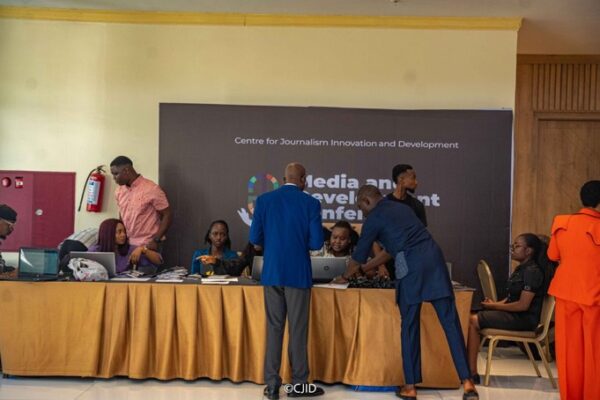The Centre for Journalism Innovation and Development (CJID) has officially launched the third edition of its West Africa Media and Development Conference, set to run from November 24 to 27 in Abuja.
Under the theme “Reimagining Democracy, Development and Data for the Next Decade,” the four-day gathering will bring together journalists, policymakers, researchers, diplomats, civil society leaders, and technology experts to explore pressing issues shaping the region.
Discussion topics will include democratic resilience, media sustainability, climate and extractive sector governance, digital rights, food security, fact-checking, and the emerging impact of artificial intelligence on public life.
The conference will host several ambassadors, development partners, and senior experts, with goodwill messages expected from diplomatic missions representing up to 20 countries.
The keynote address will be delivered by Juana Kweitel, Vice President and Chief Programmes Officer at Luminate, followed by a fireside chat on democracy, civic space, and data governance.
Over 20 sessions will feature speakers from ECOWAS, Open Society Foundations, NRGI, CIPE, Africa Check, Channels Television, Premium Times, The Cable, and other leading media and governance institutions.
CJID Executive Director Akintunde Babatunde highlighted that the conference is convening at a pivotal moment for democracy and public-interest journalism in Africa.
He emphasised that it will provide a platform for in-depth discussions on democratic backsliding, shrinking civic space, and the growing influence of Big Tech and AI, while also spotlighting opportunities for innovation and resilience across the continent.
The event will also see the launch of three DAIDAC research studies on information disorder, the presentation of the 2025 CJID Openness Index, showcases of emerging innovations, and the annual awards celebrating excellence in journalism.
READ ALSO: NILDS, CJID train youths on fact checking, information dissemination
“The world is entering a decisive decade for democracy, development and civic life, and Africa stands at a crossroads. Democratic backsliding is accelerating, with coups, constitutional manipulation and shrinking civic space undermining trust,” Babatunde said.
“Regional cooperation is under strain as ECOWAS marks 50 years amid legitimacy crises following the AES exits.
“At the same time, Big Tech and AI companies now shape information, governance and economies with little accountability. Media ecosystems are collapsing under donor cuts, declining advertising and political repression, while misinformation distorts how young people see themselves, how families make health choices and how citizens engage politically.
“Yet Africa is also a space of innovation and resilience, from grassroots media regaining trust to civic-tech platforms opening governments, researchers generating new data and national AI strategies shaping global debates. The conference is designed to help us think clearly about the next decade and the role the media must play.”
The week will conclude with the West Africa Journalism Awards, celebrating outstanding investigative reporting, fact-checking, climate journalism, and campus journalism across the region.





